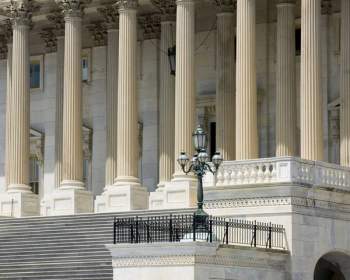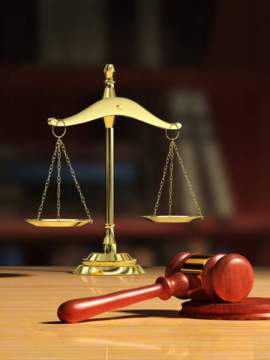
Olmstead v. United States

The Background of Olmstead v. United States:
Olmstead v. United States was a landmark decision offered by the Supreme Court of the United States. Olmstead v. United States reviewed whether the use of wiretapped telephone conversations, obtained by federal agents, without any judicial approval, can be subsequently used as evidence in a federal criminal trial. The use of such information in Olmstead v. United States was evaluated in conjunction with a defendant’s rights latent in the Fourth and Fifth Amendments. The courts in Olmstead v. United States held that neither the rights and liberties granted in the Fourth nor Fifth Amendments were violated. This decision; however, was later overturned in Katz v. United States.
The case of Olmstead v. United States concerned a group of petitioners, including Roy Olmstead, who directly challenged convictions by arguing that the use of evidence obtained from wiretapped private telephone conversations was a direct violation of the Fourth and Fifth Amendments to the United States Constitution.
The petitioners in Olmstead v. United States were convicted for conspiracy for violations of the National Prohibition Act—the men convicted were charged with unlawful possession, transporting and selling alcohol. The evidence obtained through wiretapping revealed that Olmstead and nearly 75 other individuals were engaging in a bootlegging business; Olmstead was the general manager of this business and received 50% of the profits. No laws were violated in regards to the installation of the wiretapping equipment—the officers did not trespass upon the homes or the offices of the defendants.
The Case Profile of Olmstead v. United States
The following is a case profile of the legal trial eponymously titled ‘Olmstead v. United States’:
Date of the Trial: Olmstead v. United States was argued on February 20-21 of 1928
Legal Classification: Administrative Law; this legal field associated with events and circumstances in which the Federal Government of the United States engages its citizens, including the administration of government programs, the creation of agencies, and the establishment of a legal, regulatory federal standard
Accused Criminal Activity: The following criminal activity and charges were cited by the United States Government against Roy Olmstead within the appeal brought forth subsequent to the initial ruling:
Olmstead and a group of 72 employees were charged with illegally possessing, transporting and selling alcohol. Olmstead to refute the conviction claimed that the United States Government obtained evidence through the illegal use of wiretapping devices. Olmstead claimed that the Fourth and Fifth Amendment to the United States Constitution protected private conversations form being tapped into.
United States Reports Case Number: 277 U.S. 438
Date of the Delivery of the Verdict: Olmstead v. United States was decided on June 4, 1928
Legal Venue of Olmstead v. United States: The United States Supreme Court
Judicial Officer Responsible for Ruling: Chief Justice William Taft
Verdict Delivered: The United States Supreme Court ruled that the Fourth Amendment’s proscription on unreasonable search and seizure did not apply to the use of wiretaps.
NEXT: Palko v. Connecticut





















